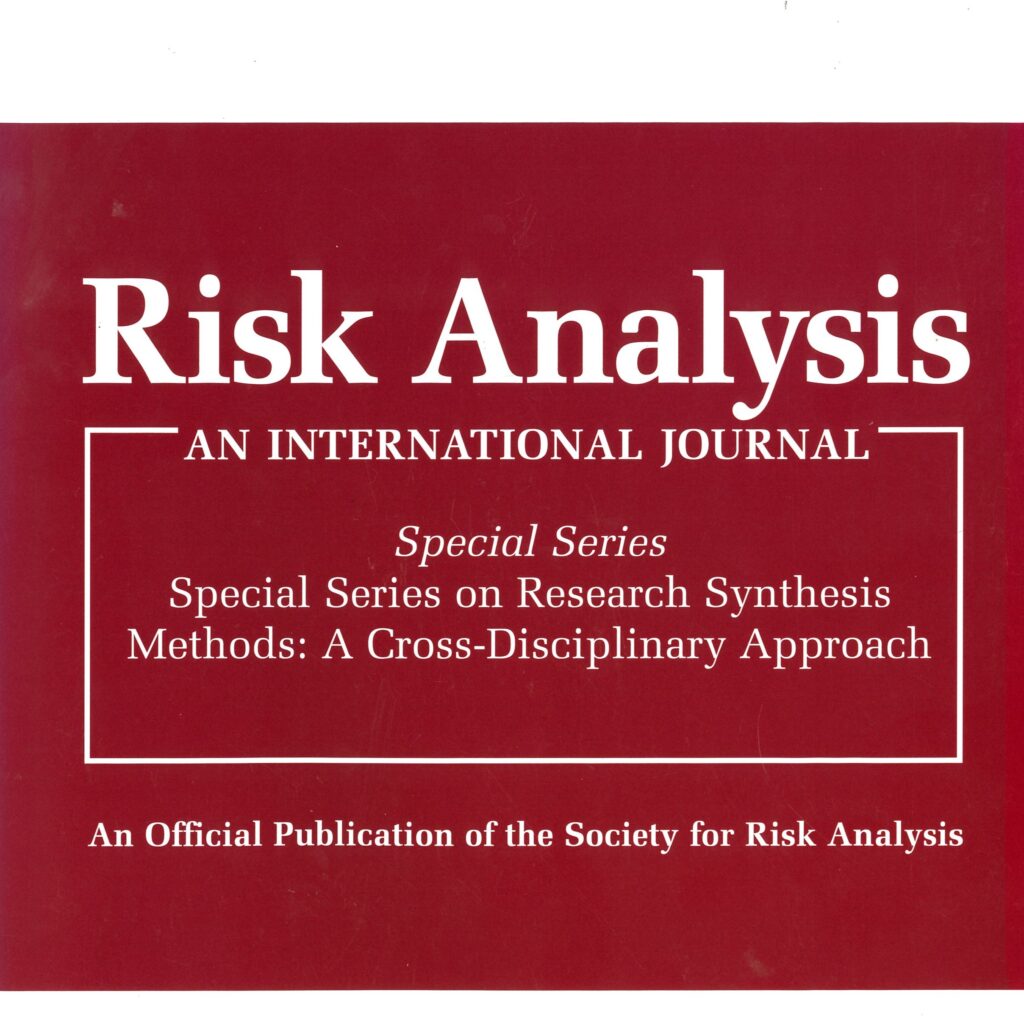Harvard Center for Risk Analysis
The Harvard Center for Risk Analysis (HCRA) uses risk and decision science methods to improve how society manages risks to human health and the environment.
718 Huntington Ave.
2nd Floor
Boston, MA 02115-5924
Past Events
Risk Assessment, Economic Evaluation, and Decisions Workshop
Harvard University Center for the Environment, Cambridge, MA
September 26-27, 2019
Dr. Evans has contributed significantly to risk analysis. His many contributions include addressing uncertainty through assessing the value of information, using structured approaches to elicit expert judgments, and developing approaches for assessing risks in data-limited contexts, such as intake fractions. Building on this foundation, the workshop also addressed innovative approaches for better integrating risk assessment and economics. This theme was inspired by the need to address unresolved issues identified by the 2009 National Research Council report, Science and Decisions: Advancing Risk Assessment. Related topics included estimating changes in risk associated with benchmark dose and other quantal models to support monetary valuation for benefit-cost analysis; accounting for changes in averting behavior when estimating the health effects of changes in exposures; and characterizing uncertainty and its implications for decision making.
The lead workshop supporter was the Society for Risk Analysis, Economics and Benefits Analysis Specialty Group. Additional support was provided by the Harvard Center for Health Decision Science, Department of Environmental Health, China Project on Energy, Economy and Environment, and University Center for the Environment, as well as by Industrial Economics, Incorporated.
Read our Risk Analysis Special Issue: Risk Assessment, Economic Evaluation, and Decisions
Risk, Perception, and Response Conference
Harvard T.H. Chan School of Public Health, Boston, MA
March 20-21, 2014

How people react to scientific evidence of risk is mediated by many factors, including how risk information is perceived and communicated, how we react to social and cultural influences, and how choices are structured. Examples abound of situations where individuals’ risk perceptions lead them to act in ways that appear contrary to their own interests, overreacting to or neglecting risks. How can situations in
which individuals are likely to respond poorly be identified, and what can be done to improve their responses?
To increase our understanding of the factors that contribute to these behaviors and to develop better options for fostering sound decisions, the Harvard Center for Risk Analysis commissioned a series of papers that covered the conceptual framework and crosscutting issues, health care, occupational and transportation risk, food safety, and finance. We were joined by keynote speaker Cass Sunstein, who discussed “Choosing not to Choose.”
Funding for the project was provided by the Risk of Risk Perception Project of the Center for Risk Science Innovation and Application of the ILSI Research Foundation. The conference was sponsored by the Society for Risk Analysis. The workshop was followed by the 20th Kyoto University International Symposium.
Read our Risk Analysis Special Series: Risk, Perception, and Response
Methods for Research Synthesis: A Cross-Disciplinary Approach
Knafel Center (Radcliffe Gymnasium), Harvard University
October 3, 2013
the monetary value of risk reductions, or the effectiveness of different interventions. However, researchers often face difficult questions about how to choose among these methods and how to adapt each method to particular problems and available data. If used inappropriately, these approaches may yield misleading conclusions about the relative merits of alternative interventions, leading to undesirable policy outcomes.
This workshop was part of an interdisciplinary project to improve the use of these methods in policy analysis. Its goal was to promote evidence-based decision making. Its objectives included:
- Increasing cross-disciplinary communication and collaboration on methodological issues by bringing together experts from diverse fields to address common problems;
- Defining more rigorously the types of problems and data for which different synthesis methods are most appropriate, alone or in combination;
- Developing innovative approaches for addressing specific challenges in applying these methods; and,
- Identifying areas where further cross-disciplinary work will be particularly fruitful
The workshop provided an opportunity for presentation and discussion of invited papers on the application of these methods in diverse contexts. Papers evaluated, for example, how a particular method should be applied in different contexts, or how different methods should be used for a particular application.
Major funding was provided by the National Science Foundation, with additional support from the Harvard Superfund Research Program Research Translation Core and University Center for the Environment, as well as the European Association of Environmental and Resource Economists, Gradient, the Health Effects Institute, the Texas Commission on Environmental Quality, the Society for Risk Analysis Economics and Benefits Analysis Specialty Group, and the U.S. Department of Agriculture Economics Research Service.
Read our Risk Analysis Special Series on Research Synthesis Methods: A Cross‐Disciplinary Approach

